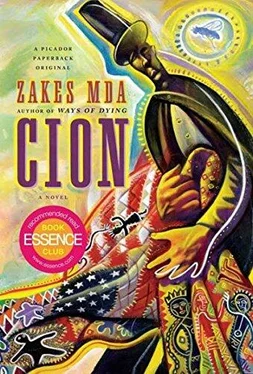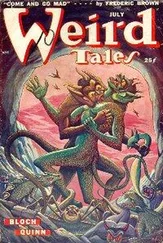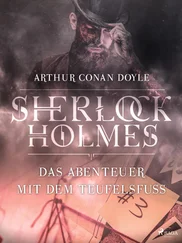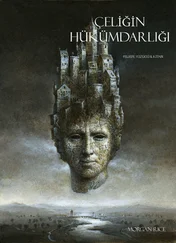She is surrounded by crayons on the comforter. She holds a sheet of paper on which there is a work-in-progress: stylized ghost orchids floating among stylized branches of ghost trees.
So this is how she creates her work.
“I knew the motherfucker was out there all the time,” says Mahlon as he ushers me to sit on the bed next to Orpah.
“He can’t take no part in our memories,” says Orpah.
“He won’t take no part,” says Mahlon. “But it don’t matter if he see them memories, little girl. He can’t change them no ways.”
“They’re not for seeing by nobody.”
“He’s seen some already.”
“He’s a fuckin’ spy,” she says. “He’s the one who’s gonna tell on the Abyssinian Queen.”
She still does not look at me. It is as if I am not there at all.
“I am not going to tell anything,” I protest.
“We’ll kill him if he tells on her,” says Mahlon.
He is a medium man. He gets his stories from the ghost trees. He transmits them to Orpah who then re-creates them.
9. Mother of All Mourning
Now I know why it is always winter in Orpah’s pictures; why her ghost trees are devoid of foliage: Mahlon’s midnight stories are set in wintry landscapes. His memory begins and ends with winter frolics, winter journeys and winter crossings. When Orpah’s obsessions force into the performances ghost orchids, which by nature bloom only in summer, they adapt to the season of Mahlon’s visions and float like snow flakes among the naked branches of ghost trees. They fall on the flowing garments of dancing celebrants where they gleam like misshapen stars on undulating skies.
Mahlon’s performances date back to the time when the children were children. And when Mahlon was still Mahlon. When his face was not marred by a permanent smile. When his hogs and cows were thriving. When his garden was blooming with flowers. He read bedtime stories to the children before they slept. They all shared the same bedroom at the time. Mahlon sat on the children’s bed and read them stories about little mermaids, mermaids that were headless, princesses and peas, Ali Baba and the Forty Thieves and many others. Stories set in faraway lands and written in bold letters and illustrated in colorful pictures in books that Mahlon brought from the Center and from used-book stores in Athens.
When he could not get more books he read the same stories over and over again. Until the children could complete the sentences. Until they were bored with them. Then he took to creating his own tall tales. These were not confined to bedtime. He told them after dinner at the kitchen table. Or on the porch during balmy summer evenings. He did not only tell them. He performed them.
Later he went to the forest to get more stories from the ghost trees. And from all sorts of other trees. Those that could bear witness to how things used to be. Those that sprouted from the seed that fell from those that saw and remembered. That is how stories became memories. That is how he became the medium man.
At first Ruth did not mind these stories. But the more she read the Bible and The Word was revealed to her, the more she felt uncomfortable with them. Stories about the sun that was lonely because nothing else had been created yet and about a black woman who flapped her wings and swooped down from ghost trees that were so high they touched the clouds were unchristian. She banned them from the house.
Her Mr. Quigley did not want to upset her. But he was too addicted to the performances to give them up. And so were the children. By this time Mahlon had sold his small farm and the family had moved to the present house. Mahlon took to performing his stories for Obed and Orpah in Orpah’s room. Soon the costumes were introduced. At about the same time Obed was gradually withdrawing from the performances because he had outgrown them. Orpah never outgrew them. Instead she became a co-creator of the stories. Mahlon would come up with only the beginning of a new tale, and between father and daughter a tandem story would develop. Or Orpah would complete the stories by painting them.
Ruth knew what was happening in Orpah’s room, but gave up on her Mr. Quigley. “One day God is gonna make him stop,” she said. God hasn’t made him stop yet. She never got to know that the pictures she relentlessly destroyed were inspired by the storytelling sessions. She still thinks Orpah draws them when she locks herself in her room all day long.
After piecing all this together from Obed and also from Orpah — who is reluctant to talk about it or even to acknowledge that I was present at one such session the other night — I decide I must make it up to Mahlon for having thought evil thoughts about him. Whether he knows or not that I hated him is not important. I know. And it gnaws at me. I think it is only proper that I assuage my guilt by doing something for him. Perhaps make an offering of a whole bunch of gnomes. Or better still, find his mother’s grave. That will have greater impact, I think. Ruth once told me that there will be peace in him only if he finds his mother’s grave and does what is right by her. She said even his fortunes would change. I had marveled at the time that these people’s beliefs about appeasing the dead were very much similar to ours. Yes, I am going to help Mahlon find that grave. I do not know yet how I will go about it. But I certainly will.
When I was at The Ridges on the night of the parade of creatures about ten months ago I noted that three or four of the graves had tombstones with inscriptions on them. Some of the relatives were able to locate and identify the exact graves where their loved ones were sleeping. I must find out how that was done and proceed to locate the grave. It may take a lot of detective work, but it is the least I can do for Mahlon, and for Ruth. It may not mean anything to Orpah and Obed. Especially to Obed, who seemed to find the discussion embarrassing at that first dinner with the family.
I pay Ruth a surprise visit to suggest the idea of searching for the grave. She is at the clothesline near her vegetable patch airing her pre — Civil War quilts. I can see the Turin-like image of the first Quigley on one of them. The one the “kids” claim is nothing but a urine stain.
“We don’t see you no more,” she says by way of returning my greeting.
She is right. Throughout the summer months I have only had a few glimpses of her from a distance — one of the dark figures on the luxuriant green of Kilvert.
“But I hear you come like a thief at night for Mr. Quigley’s silly memories,” she adds.
This is not quite accurate, but I don’t say that to her. I did come, yes, but only that one time Mahlon caught me eavesdropping at the window. The night he invited me in despite Orpah’s protestations. That was weeks ago. And that performance had bombed as soon as I got seated on her bed. It was no longer carefree and smooth-flowing as before. It lacked the abandon I had seen through the window. Mahlon seemed to be self-conscious. He tried to glide as I saw him do, but his movements were wooden. He kept giving me a sideways glance. When he introduced a song to the story of how the sun shed one big tear that rolled downhill and broke into many tears that in turn became children, his voice was hesitant. When he came to the part where the sun farted out a giraffe and a character called Divided, Orpah’s response to Mahlon’s chants tried to be as spirited as before, but soon she gave up in exasperation because Mahlon’s calls had gone limp. Her hand did not move with ease on the page. She was not happy with the result and tore the pictures in frustration. Then she glared at me accusingly. Mahlon ushered me out mumbling: “You son of a bitch, you messed up our memories.” I stood outside for a moment and listened while Orpah accused her father of allowing me into their secret world of memories. Then Mahlon made an unceremonious exit. Though he saw me standing there he ignored me and marched like a defeated soldier — sword sheathed — into the house using the kitchen door.
Читать дальше












